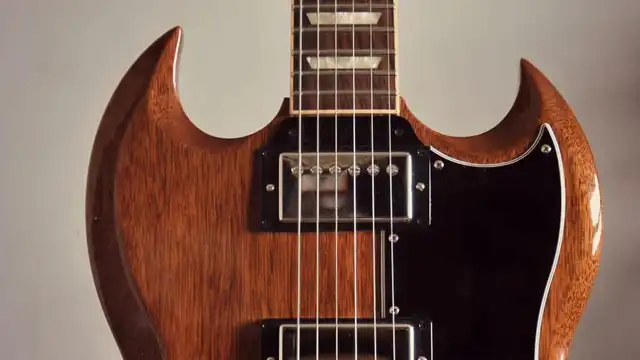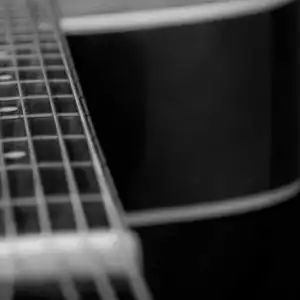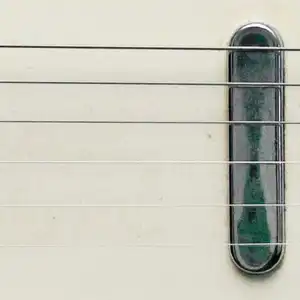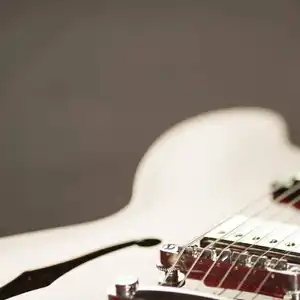Should You Play Custom Guitar String Gauges?


Be sure to subscribe to our YouTube channel to keep up with more great videos like this one.
Today we're talking a little bit about whether or not you should customize the gauges in your own guitar string set. We're going to talk about why you might want to customize your guitar string gauges, what advantages that could have for you and your playing, as well as what, if any, disadvantages you might encounter along the way.
So this is a topic near and dear to our hearts. Stringjoy actually started as just a custom gauge guitar string shop where players could come and customize all of their gauges and each individual set. It was only later on that we developed our balanced guitar string gauges and a lot of those things that are more popular at this point; but we've always been all about custom gauges because we believe that the more customization, the more options, the more flexibility you have as a guitarist, the better you'll be able to dial in how you want your rig to sound and play. Over the course of being a company, we've made custom gauge guitar string sets for literally tens of thousands of players and we've followed up with a lot of them to see what has worked and what hasn't and I can tell you that the feedback has been almost universally positive along the way; but today we're going to cover the big reasons you might want to do it and what issues you might come across.Why go the Custom Route?
To get a different sound.
So, there are really three main reasons that we come across for why different players will choose to customize the gauges in their guitar string set. The first of these is to get a little bit of a different sound out of their guitar. Whether you want a fuller bottom end, a little bit more power on the top, or you want the more tonal balance of a wound third string, to not get that weird sort of snappiness out of the G string on your guitar, changing the gauges in your set can be a really easy way to help fix some of that and dial in your guitar, so it sounds a little bit more the way that you want it to.To get more playability.
The next reason a lot of players will choose to customize the gauges in their set, and probably the most often reason that we really get from players, is in order to change the way that their guitar actually plays. Whether you want a little bit more flexibility on top, or you want a fuller more powerful bottom end that isn't going to buzz when you're really hitting it hard, changing the gauges can be a great way to adapt your guitar to fit your play style a little bit better.To balance out other changes.
The third and final reason that most players will choose to customize the gauges in their set is in order to account for other customizations they might have made to their guitar elsewhere. If you're playing in a different tuning all around, it's probably a good idea to look at customizing the gauges to better fit that. Or, if you swapped out your pickups and that changed the way your guitar sounded, strings can be a great way to kind of balance that out a little bit.Advantages of Custom Guitar Strings
So, whether it's one of those reasons that really speaks to you, or a combination of different factors of the three, choosing to go the custom route can have a number of advantages versus trying to fix these problems a different way.Change you can hear (and feel).
The first is that changing your guitar string gauges can have a really substantial effect on both the way your guitar sounds and the way your guitar plays. Ultimately, the way that your guitar sounds and plays is a combination of the guitar itself, how you play it and the strings that you're actually playing on the guitar. All these things come together to form the base of it and then you add in things like pedals and amps and all that, to get to the way that everything actually sounds in the end; but strings are a really core element of that process and making even small changes at that point can have a really, really big effect on everything else in the signal chain.A cost-effective solution.
The next big reason to go the custom route is that overall it's really cost effective. For only $12 or $15, you can change the way that your guitar sounds or plays or feels to you, which is way cheaper than any cable you can buy, or any pedal, or any different amp, or buying a whole new guitar. If you can make the guitar that you have play and sound a little bit more the way that you want it to, it's going to be a lot easier than selling that guitar, or just buying a new one, or anything else that you can really do. The nice thing is, it's money that you're probably going to have to spend anyway. Strings don't last forever and eventually you're going to have to change them out, so you would've bought another set of strings no matter what. All that you're doing is changing some things around and seeing if it really speaks to you.Disadvantages of Custom Guitar Strings
Now, even though those advantages, I think, are really, really big positives, there are some disadvantages of going the custom string route as well; and I think it's important that we cover those also.(Possibly) changing your guitar's setup.
The first possible disadvantage is that you might have to make some changes to your guitar's setup. This depends a little bit on which gauges you choose and what gauges you're coming from. If you're making a very subtle adjustment from 10s to a custom set of 9.5s, or something like that, you're probably not going to have to change that much and it depends a little bit about how much of a stickler you are about your guitar's intonation. If you like everything to be really, really precise, you might have to make some small adjustments but again, they're not going to be huge. It's going to be some small tweaks to get everything sounding and playing just the way you want it to; but even if you make a larger adjustment and you jump from 10s to 13s, or something like that, you may have to adjust your intonation but probably only once and if you take it to a tech, they'll be able to do a great job at getting everything set up perfectly for those new gauges and you'll be fine in the future. Again, this is all kind of a spectrum, so it depends on how big of changes you make. If you try to jump just a massive amount in gauge, you might have to adjust your nut slots, or things like that, to get everything to work just right but in 99% of cases, players aren't really adjusting all that much. If you go from a 46 to a 50, or a 52, it's not going to require any major tweaks to your guitar, just some minor changes of intonation, if even that.It may require a bit of patience.
The other disadvantage is that it just might take a little bit of patience to get everything just right. Even if you're balancing out your tension just right, or using expert help to find the perfect gauge of custom guitar strings, you never really know how it's going to play until you actually get it on your own guitar and give it a couple of days to kind of feel how everything plays and adjust a little bit to it. So, it might take a few iterations of the process to get everything dialed in just right and it just depends on what type of player you are, as to whether that's alright with you. In most cases though, you're talking about very minimal effort in order to dial everything in perfectly and I think overall, the process is well worth it.You'll want to stock up.
The third and final disadvantage you might encounter is that if you find a custom set that you really, really like and you set up your guitars for it and that's the only way you can imagine them playing, you might have to think ahead a little bit and buy a few sets, so that you'll always have one on hand in case something happens. This isn't usually a big deal for most players. You can just buy two or three sets at once and you'll be set for a long time but it's something worth taking into account.Making Sense of it All...
So, should you customize your guitar string gauges? Ultimately, the answer lies with you. It depends on what you're looking for. One piece of advice that I would give to most players is if you have something specific in mind, it's definitely worth going the custom route. If you're not really sure in what ways a 10-46 set, for example, could play a little bit better for you, I would think pretty hard about it and try to come up with some ideas of what you'd like to accomplish before you go that route because it's not like there's just one solution that's right for everybody. Everybody's going to be a little bit different. If you really don't know and you just feel like having some fun, experimenting with different gauges, just trying out different things and seeing whether they work or not, it can be a lot of fun. I do it all the time and I have a really great time with it. So, again, it just depends on who you are and where you are in your guitar playing process and what you're looking for. Like I said earlier, at Stringjoy we started as a custom guitar string shop and so even though now we sell a lot more of our balanced sets and we focus on a lot of different elements of strings, custom sets are really super important to us even still. We always want to make sure that we make it really easy for you to customize any individual gauge in your set and really easy to get the help that you're looking for to better dial in your set. So, check out our guitar string shop. Take a look at all the different options we have. If anything really screams out to you, or if you think there's anything about the strings that you're currently playing that could be a little bit better, try a set and see what happens. If you have any questions, or there's anything at all that we can help with, just shoot us an email at [email protected]. We are always here to help. We really look forward to hearing from you.Other Posts you may like

Guitar Strings Order: How the Guitar is Tuned and Why

Two Handed Tapping: Our Top 8 Tappers of All Time

Which Guitar Strings Wear Your Fret Wire Down More?

What is Nashville Tuning? Its History, Best Guitar Strings & Uses

Guitar Scale Length Explained: String Tension & Playability

What Guitar Strings I Used To Play...
0 Responses
Leave a Reply
Your email address will not be published. Required fields are marked *

